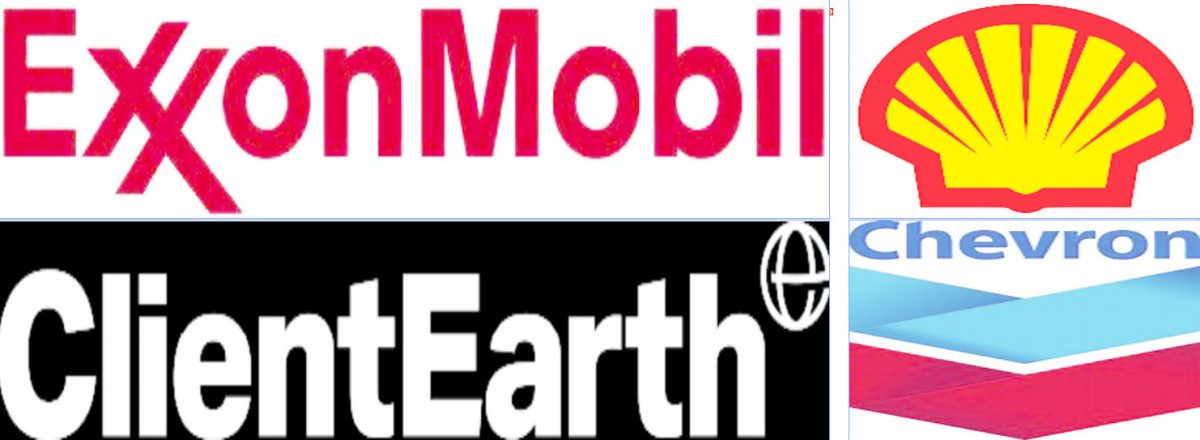Even as an increasing number of poor countries begin to celebrate oil finds and the prospects for economic transformation that could inhere therein, a global environmental lobby continues to move in a direction that could undermine if not shatter altogether the dreams of the oil wealth hopefuls.
Last week CNN Business reported that a group of lawyers who are backing the global environmental lobby to push back the influence of oil are calling for oil company advertisements destined for television and social media to be attended by “tobacco-style health warnings’ that explicitly address the dangers that fossil fuels pose for the future of the planet as a condition for their advertisements being accepted and used.
The CNN report alludes to “new research” which it says was published last week by ClientEarth, an environmental law charity, accusing some of the world’s biggest oil firms of “misrepresenting the role their businesses play in the climate crisis and overstating the speed at which they are transitioning to clean energy sources.” ClientEarth comprises lawyers and environmental experts who seek to use the law to hold governments and oil companies to account over climate change, nature loss and pollution.
The ClientEarth research-based findings assert that “the companies most responsible for catastrophically heating the planet are spending millions on advertising campaigns about how their business plans are focused on sustainability,” a lawyer representing the group is quoted as saying. What ClientEarth describes as “Green washing” is, it says, a problem “because it can mislead the public about the true environmental cost of persisting with fossil fuels and twist wider public conversations on the climate emergency that stymy efforts to mitigate climate change.”
The ClientEarth intervention raises questions about the posture which poor countries in Africa and the Caribbean, not least CARICOM member countries, Guyana and Suriname, are likely to take on the lobby for placing caveats on oil company advertising. Over the past six years, both countries, ranked among the poorest in South America, have seen their developmental stock rise on account of huge oil finds that have the capacity to completely transform their economies.
ExxonMobil, a lead player in oil recovery pursuits offshore Guyana and Suriname is named alongside Chevron, Shell, Total, Saudi Aramco, and Norway’s Equinor, as being among the companies on which ClientEarth has compiled dossiers that compare their climate pledges to their business practices. The organisation is reportedly contemplating legal action against these companies.
ClientEarth had reportedly commissioned the investigative media organisation DeSmog to conduct research into advertising by major oil companies after which it reportedly compared claims made in ads to information published in annual reports, regulatory filings and on company websites. ClientEarth reportedly contends that even as firms make claims to the contrary, they continue to increase their investments in fossil fuel exploration and recovery rather than in clean energy.
According to the CNN report, companies, according to ClientEarth, “claim to be addressing the climate crisis while in some cases increasing fossil fuel production or planning to rely on the large-scale use of carbon capture and ‘offsets’, instead of reducing emissions in absolute terms.”
The CNN report provides what it says are responses to the ClientEarth report from Chevron, Shell and Equinor to the effect that their emissions reductions targets are in line with the goals of the Paris agreement while Saudi Aramco is also quoted as saying that it has taken steps to reduce the carbon intensity of its oil exploration and extraction activities, and it is investing in lower carbon solutions. “The technologies required to meet carbon emission goals are yet to reach the levels of maturity required to provide the world’s energy needs in an economically sustainable manner,” the company is quoted as saying.
CNN says that there has been no response to its requests made to ExxonMobil or Total for comments on ClientEarth’s claims.
ClientEarth reportedly takes the position that fossil fuel advertising should be regulated along the same lines as tobacco, with “health warnings” about the dangers of climate change that identify fossil fuels as the main contributor to global warming. The pressure group is also reportedly seeking reliable information regarding how much they are spending on fossil fuels compared with investments in low carbon businesses. It also wants a ban to be imposed on the direct promotion of fossil fuel products.
What ClientEarth reportedly ideally wants are advertising regulations for the oil industry similar to those that apply in the tobacco industry since these, over time, have been drawn increasingly tighter to embrace warnings about the health risks associated with smoking, most notably lung cancer. These warnings have been mandatory on cigarette boxes in most countries for several years.
While the Paris Agreement seeks to limit the global temperature increase to 1.5 degrees Celsius, moves to effect cuts in fossil fuel production by roughly 6% every year are unlikely to secure a great deal of traction from governments in poor countries in Africa and South America. While many of these have been advocates for policies that promote climate change, they are unlikely to want to trade in their long awaited economic prosperity prospects associated with lucrative oil finds in favour of the environmental concessions as are sought by ClientEarth.
The Intergovernmental Panel on Climate Change contends that unless there occurs a sharp decline in greenhouse gas emissions by 2030, global warming will surpass 1.5 degrees Celsius leading to “irreversible loss” of the most fragile ecosystems and ongoing climate crises for the world’s most vulnerable people.








